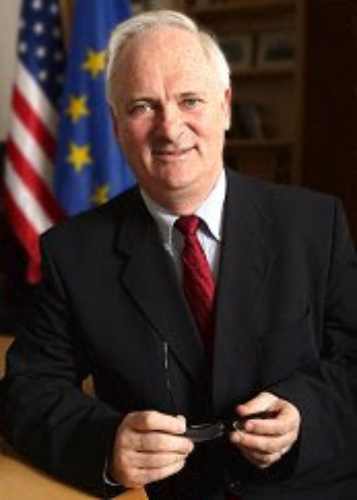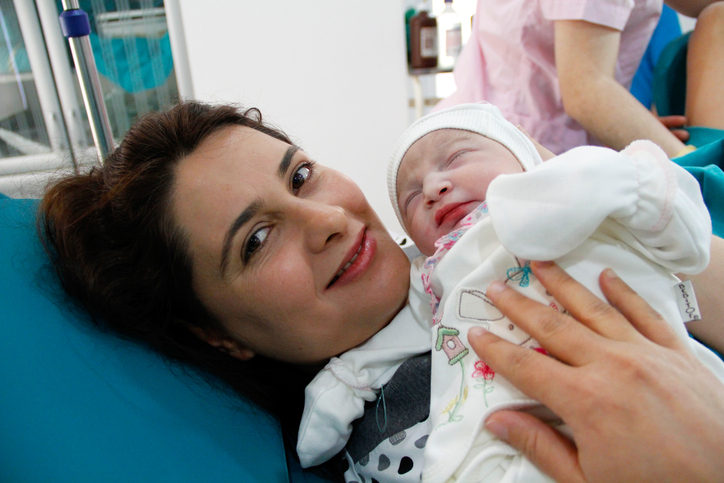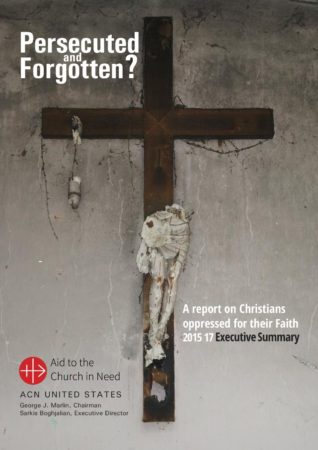
A man who now identifies as a woman wants past convictions as a sex worker erased as they reveal his biological sex. The person who now goes by the name of ‘Helen’ is to launch a judicial review to remove two convictions for “importuning as a man”.
“I do not wish my gender history to be more widely known and do not wish to disclose my trans status to employers,” he said.
Trans people with a gender recognition certificate are usually legally entitled to keep their birth gender secret, but according to Helen’s barrister the disclosure of offences that revealed Helen’s birth gender in criminal record checks was “severe and discriminatory interference with Helen’s right to respect for her private life”.
However, Nicola Williams, of Fair Play for Women, said any change would open up a “huge loophole” whereby sex offenders could transition to “wipe out” their crimes.

Health Minister Simon Harris must not force doctors opposed to abortion to refer women seeking terminations to other physicians, former Taoiseach John Bruton said at the annual dinner of the Pro-Life Campaign.
At the dinner on Saturday night, which was attended by more than 700 people, Mr Bruton pointed out that the Abortion Bill proposed by Minister for Health Simon Harris requires doctors who object to abortion to “make arrangements to transfer the care” of the woman to a doctor who would execute the abortion.
“This is aiding and abetting the abortion, and there is no conscience clause here,” said Mr Bruton. Besides being unjust, Mr Bruton said the clause was unnecessary as the Government have the option of simply publishing a list of doctors who would carry out abortions. Otherwise, he fears “that doctors who are known to oppose abortion will be targeted under this clause by people wishing to catch them out and put them under threat of criminal prosecution because of their religious or human rights beliefs.
Mr Bruton was also sharply critical of Mr Harris’s speech to the Dáil following the result of the referendum. “He spoke of the referendum result inaugurating what he called ‘a brighter Ireland’. It will not be a bright Ireland for the little babies who will have their lives ended before being allowed to see the light of a single Irish day.
“He spoke of the referendum meaning that we are ‘maturing into a tolerant, non-judgemental, inclusive Republic’. The Minister’s own speech was rather judgmental, and not particularly tolerant of those who sincerely disagree with him on the issue of abortion.”

The Supreme Court on Friday decided that there were no grounds to hear an appeal of the High Court’s rejection of a challenge to the abortion referendum result. This removes the last impediment to finalising the result of the referendum. Once the returning officer Barry Ryan certifies the final result, President Michael D Higgins is expected to sign the abortion referendum bill into law next week, deleting the constitutional ban on abortion and paving the way for the government to introduce legislation allowing for abortion to the Dáil in the coming weeks.
The Chief Justice, Mr Justice Frank Clarke, Mr Justice Donal O’Donnell and Mr Justice Peter Charleton met privately in chambers on Thursday to consider the appeal. They said there were essentially two grounds of appeal. The first concerned the engagement of members of the government on the Yes side of the referendum campaign and certain claims about what was said by government members during the campaign. The second ground concerned alleged irregularities in the registration of voters and conduct of the referendum.
Rejecting both these arguments, the Justices ruled the petition had not met the constitutional criteria for an appeal as it did not show stateable grounds that raised issues of general public importance nor did it establish that an appeal was necessary in the interests of justice. They also order the plaintiff to pay the costs of the case.
Meanwhile, doctors in Ireland could be allowed directly refer women to the UK for abortions until the new abortion law is implemented early next year, Minister for Health Simon Harris has signaled.

The visit of Pope Francis to Ireland momentarily released Catholics from the shackles of an imposed silence to briefly celebrate their faith in a way not seen since 1979, said the Bishop of Limerick.
Speaking at a retreat for Syro-Malabar Christians in Limerick, Bishop Brendan Leahy said the weekend of the Pope’s visit showed a depth of faith and celebration, joy and solemnity tinged with the realities of the abuse scandals. He said it was not 1979 in terms of the numbers that celebrated as the Church has gone through humiliation and purification, “yet one undeniable constant between now and 1979 was the sense of celebration of our faith.”
He continued: “It was everywhere I turned. At a time when many have – for one reason or another, not least the scandals that have hit the church – shied away from public expressions of faith, people felt released from shackles for the weekend. The freedom and joy as they celebrated being part of God’s kingdom was remarkable and not seen since 1979 in this country.

Christian families in India who were forced to stop attending church after Hindu radicals threatened to beat and kill them have vowed to continue worshipping in secret.
One priest who leads a congregation in India’s Madhya Pradesh State, told International Christian Concern that 15 families have stopped going to his church in recent months after facing threats and intimidation at the hands of Hindu radicals.”The radicals say they will beat and kill my church members if they continue to attend the services,” said Pastor Singh
Shankar Damor, a 37-year-old from Kardubadi village near Jhabua, told ICC his family stopped attending church because they were under serious threat of physical attack. “In a meeting last May in the village of Kardubadi, the Christians were told that we should not attend any church and should not even pray in our homes,” Shankar explained. “When we complained to the village diktat, the entire village stopped associating with us. No one attended our weddings and we were totally cut off from the people of the village.”
He added: “In that same month, when my family was praying in our house, someone from the village called the police and I was taken to the police station on false charges of forced conversions,” Shankar said. “The police beat me brutally and harassed me while in custody.”
India ranks as the 11th worst nation in the world when it comes to Christian persecution, according to Open Doors USA’s 2018 World Watch List. While religious freedom is supposed to be a constitutional right in the country, several Indian states have implemented anti-conversion laws, making it illegal for anyone to use force or allurement to convert others to another religion. Such laws are often abused by Hindu radicals to file false complaints against pastors and pressure Christians not to share their faith.

The Association of Trustees for Catholic Schools has warned Minister for Education Richard Bruton that moves to require schools to timetable classes in exam-subjects for children who opt out of religion classes may be in breach of the law.
Until now, students who did not want to participate in religious instruction or worship were mostly required to sit at the back of the class or participate in study periods. However, a circular issued this year by Mr Bruton and which has come into force for the new academic year requires that such students should be timetabled for alternative subjects instead.
The new rules apply only to State-run secondary schools and community schools and not the majority of schools which are voluntary.
The Catholic Schools group noted that community schools with shared Catholic patronage were established under “model agreements” with specific provisions regarding religious education. “It is not clear to [the association] how the Minister is entitled to issue a circular letter requiring boards of management to make particular arrangements for religious worship or religious education in the context of a community school or community college . . . where the terms contradict the express obligations cast upon the school and patron.”
It added: “The board of the association is currently considering whether the recent circular constitutes a legitimate and lawful interference with the rights of its affiliated members, which rights, as you are aware, are protected by the Constitution as well as by provision of the Education Act 1998.”

The referendum to remove a reference in the Constitution that pledges support for mothers working at home has been postponed, Minister for Justice Charlie Flanagan has confirmed. The move comes as the Government spends more money on daycare for mothers working outside the home at the expense of mothers working in the home. Mr Flanagan said the referendum has been delayed to allow for Oireachtas scrutiny on whether the article should be deleted outright or simply amended to make it gender neutral, as per the advice of the Constitutional Convention and the Department of Justice’s internal task force.
While Minister Flanagan expressed his irritation at the delay, the move was welcomed by the National Women’s Council of Ireland as an opportunity to have a national debate to properly consider the options for replacing the current text rather than rushing to delete it.
A spokesperson said there should be a forum to “consider what we want to see in our Constitution and in addition, go beyond that to what we need in legislation, policy, and investment to facilitate the women and men make real choices regarding care, family and paid work.
“If a simple deletion of Article 41.2 is put to the people, we are only offering the option of removing an old-fashioned definition of the home and women’s role in society, and we are missing this unique opportunity to express the positive contribution of equality in the home, care and work of all kinds.”

The Stay At Home Parents Association have rejected the conclusions of an ESRI report that claimed women’s employment is being scuppered by high child-care costs and therefore the Government needs to plough more money into creches to remedy the situation.
“The body of this research and CSO figures, rather than the press release, continues to show that more parents want to stay at home for part of their children’s young lives, even if the childcare costs were lower,” said a spokesperson on behalf of the Association. “We support lower childcare costs in tandem with subsidies for all other families. That is really putting children and not employers first.”
The statement said parents are continually weighing up priorities: they want lower childcare costs, but they also want the flexibility to be able to stay home, work part time and so on. They said that lone parents in particular should not have all of their choices regarding caring for their children taken away from them.
“If the government really wants to help, they would sort out pensions, subsidise all families equally and support companies that take on employees who have been at home caring for a number of years – not subsidise one form of childcare making it impossible to stay home,” the statement concluded.

Thirty-four countries around the world continue to severely restrict the right of people to live in accord with their faith says a new report from the European Parliament.
The Parliament’s Intergroup on Freedom of Religion or Belief and Religious Tolerance presented its annual report yesterday and called for a strengthening of the mandate of the EU Special Envoy for Freedom of Religion outside the European Union.
The report says that much of the world’s population is deprived of their right to freedom of religion or belief, thought or conscience. Among the many examples of the persecuted communities throughout the world, it says Rohingya Muslims continue to be persecuted in Myanmar, Christians continue to be sentenced to death for blasphemy in Pakistan, Atheists continue to be demonised and non-Hindu’s are step-by-step deprived of their rights in India.
Persecution is also widespread in countries such as China, Vietnam and North Korea.

Ireland’s marriage rate fell slightly in the first quarter of 2018 from 2.9 per 1,000 (3,459) to 2.8 per 1,000 (3,351), according to the latest vital statistics from the CSO. The number of same-sex marriages fell sharply. There were 106 such marriages in the first three months of 2018 compared to 130 during the same period in 2017 and 186 in the same period in 2016, which was the first full year after the passage of same-sex marriage in 2015.
Population growth also continued to slow in the first quarter of this year due to a significant fall in the birth rate. There were 15,659 births in the first three months of 2018, a 5 per cent decrease on the same period last year. Ireland’s birth rate currently stands at 13.1 per 1,000 population, a decrease of 0.8 from the first quarter of 2017. There were 5,919 births registered outside of marriage, accounting for 37.8 per cent of all births in the quarter. The lowest rate of such births was in Dún Laoghaire-Rathdown at 23.4 per cent.